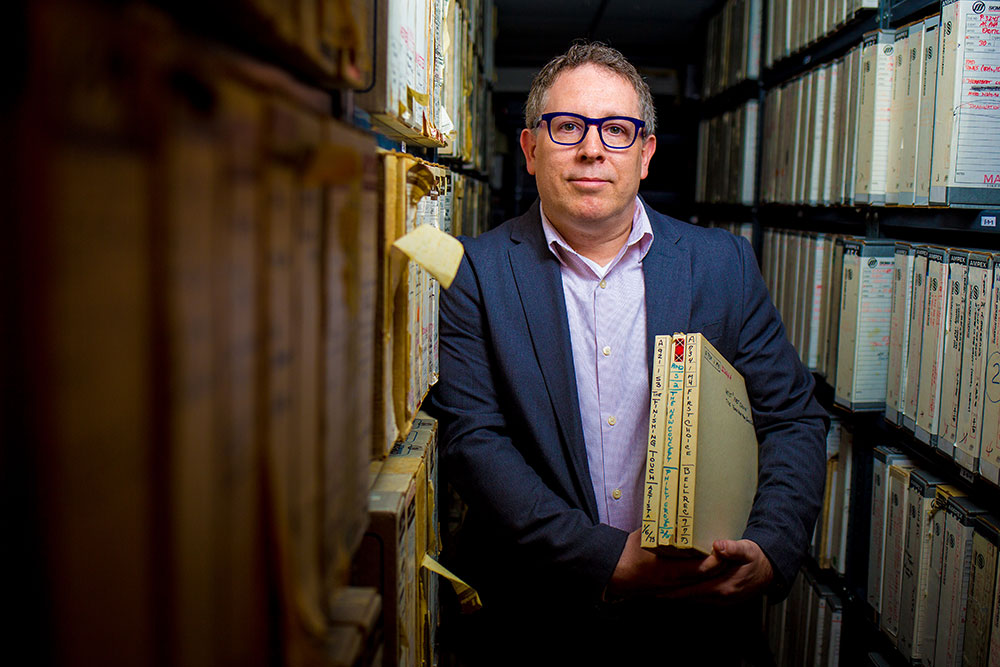It was pretty much an even swap. First, Reservoir, an independent music publisher based in New York City, had been scouring the country for long-lost tracks from the defunct classic soul and R&B label Philly Groove Records, which it acquired in 2012.
As it happens, 43 tracks were squirreled away in the Drexel Audio Archives’ Sigma Sound Studio Collection — recordings from an iconic Philadelphia recording studio used by some of the top R&B, pop and rock artists during the ’70s, ’80s and ’90s. When the studio closed its doors in 2003, Drexel acquired its trove of music, including the Philly Groove tracks.
“[Soon after acquiring Sigma Sound’s archives], I had for whatever reason pulled a tape off the shelf — it was a Philly Groove tape — and it was fantastic,” says Toby Seay, steward of the audio archive and an associate professor in the Westphal College of Media Arts & Design. “From that point on, whenever I saw Philly Groove stuff, I pulled it off the shelf. I already knew that stuff was here, so when Reservoir called and asked for Philly Groove, I said ‘Yep, we’ve got that.’”
“I was very excited, especially when he told me some of the titles that he had,” says Faith Newman, Reservoir’s senior vice president of creative and business development. “There were some songs that I didn’t even know existed.” Then, another opportunity revealed itself. On its search, Reservoir found a collection of Philly Groove material in Jupiter, Florida — more than 50 raw vocal and instrumental tracks started and then forgotten. The multi-track tapes were then digitized but Reservoir had no idea what the complete mixes were intended to sound like.
“That’s when we got the idea to have our students work on these tracks,” says Seay
Philly Groove Records was founded in the late 1960s by Stan Watson. Some well-known works released under the label include The Delfonics’ “Ready Or Not, Here I Come” and “La-La Means I Love You.” The label is credited for playing a part in establishing the “Philadelphia soul” sound. Philly Groove also recorded materials for undiscovered acts like Navy Star, The New Concept and Music Machine, whose unfinished materials remained in storage for years after the label’s termination in 1974.
In an independent study class taught by Seay called “Uncovering the Philly Groove,” undergraduate students worked with raw vocal and instrumental tracks to complete songs that were originally started well before the students were even born.
“For students, this is a chance to jump time in recorded music history, using the skills they’re learning today to resuscitate a project that was started by professionals years ago,” Seay says. “The class also demonstrates, in a very tangible way, the kinds of creative opportunities the music business continues to offer.”
Under Seay’s guidance, the class first tended to the technical upkeep of 16 tracks — developing file names and metadata for each. For the creative portion of the project, students compiled the recordings’ raw vocal and instrumental takes, using modern mixing technology to add a sonic profile to each song that wouldn’t have been possible when they were recorded.
“We got to leave our own individual stance on the different tracks,” says Brendan Monahan, a sophomore music industry major. “It was so cool to be able to use the computer as the main tool, something [the original artists] didn’t have the opportunity to use. We got to blend together old and new technologies.”
In March, students presented some of the first finished tracks.
“I was very impressed with their enthusiasm,” Newman says. “This is music that was recorded before their time, maybe even before their parents were born, and you could tell they definitely researched the history of soul music and really got a feel for it.”
Seay says the hope in the near future is for Reservoir to release a compilation album featuring all of the remixed tracks. Newman confirmed that information, but stresses it’s still just an idea.
“It’s definitely something we all hope will happen,” Seay says.



